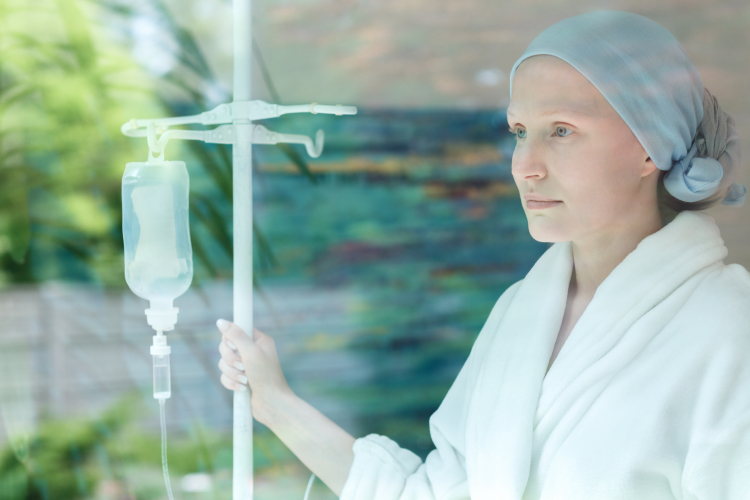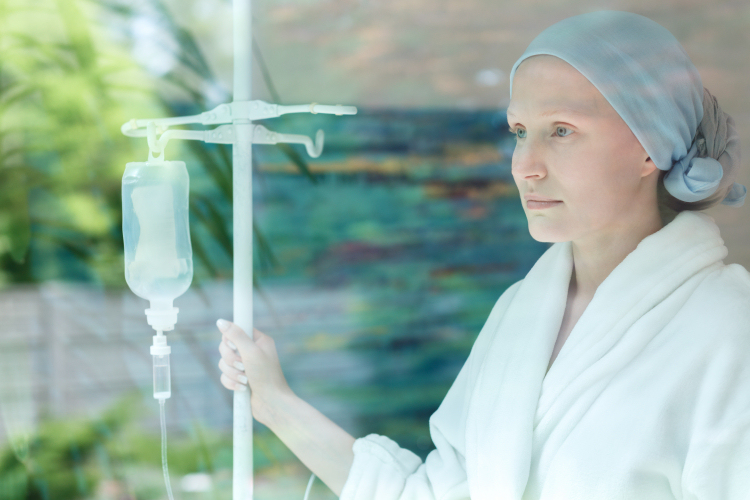
Bottom Line: The ability of serum obtained from women with breast cancer immediately after finishing two hours of moderate to intense exercise to prevent the growth and survival of breast cancer cells lines in vitro and in mice was attributable, at least in part, to epinephrine activation of the Hippo signaling pathway.
Journal in Which the Study was Published: Cancer Research, a journal of the American Association for Cancer Research.
Author: Pernille Hojman, PhD, group leader in the Centre for Physical Activity Research at Copenhagen University Hospital in Denmark.
Background: Hojman explained that accumulating epidemiological evidence indicates that exercise can lower a woman’s risk of breast cancer recurrence but that relatively little is known about the molecular mechanisms underlying this protection. It is important that we fully understand this if we are to design training interventions that molecularly target tumor progression and metastasis, she said.
Hojman colleagues have previously reported that two hours of moderate to intense exercise by women who have survived breast cancer increases the level of a number of factors in the serum and that this serum reduced the survival of breast cancer cell lines in vitro. In this study, the researchers set out to determine which factor was responsible for the effect on cell viability and the mechanisms behind it.
How the Study Was Conducted and Results: Hojman and colleagues obtained blood samples, which they processed to attain serum, from seven healthy women and 20 women who were being treated with adjuvant chemotherapy after surgery for early-stage breast cancer, before and after two hours of moderate to intense exercise. The exercise in which the women with breast cancer participated was part of a six-week standard exercise rehabilitation program at the Copenhagen University Hospital.
Serum obtained after exercise from both healthy women and those with breast cancer reduced the survival of two breast cancer cell lines, MCF-7 and MDA-MB-231, in vitro compared with serum obtained before exercise. It also significantly reduced the ability of MCF-7 cells to form tumors if injected into mice. Forty-five percent of mice receiving the cells exposed to serum obtained after exercise developed tumors compared with 90 percent of mice receiving cells exposed to serum obtained at rest.
The effects of the serum obtained after exercise on MCF-7 cell survival and ability to form tumors in mice were significantly reduced if epinephrine was blocked from attaching to its receptor on the surface of the MCF-7 cells. Blocking epinephrine did not significantly alter the effects of serum obtained after exercise on MDA-MB-231 cells.
Further analysis showed that epinephrine in serum obtained after exercise activated a known tumor suppressor signaling pathway, the Hippo signaling pathway, in MCF-7 cells but not in MDA-MB-231 cells.
Author Comment: “The results of this study show that moderate to high intensity exercise leads to an acute increase in levels of epinephrine, which can reduce breast cancer cell viability and tumor growth via activation of the Hippo signaling pathway,” said Hojman. “Although these data suggest that it might be optimal for women with breast cancer to exercise at a moderate to high intensity, further studies are needed to confirm this. Women who have been diagnosed with breast cancer should consult a doctor before embarking on an exercise program.
“MCF-7 cells are hormone receptor-positive and MDA-MB-231 cells are triple-negative,” added Hojman. “There are epidemiological data that suggest that exercise might be better at reducing the risk of recurrence of hormone receptor-positive breast cancer compared with triple-negative breast cancer, which might explain why the effects of serum obtained after exercise were more pronounced on MCF-7 cells. In addition, these cell lines differ in which mutations they carry, and the difference in the exercise effect might be a result of this.”
Limitations: According to Hojman, the main limitation of the study is that this is a model of breast cancer recurrence and metastasis and not the natural processes.
###
Funding & Disclosures: This study was supported by funds from the Danish Cancer Society, the Danish Cancer Research Foundation, the Dagmar Marshall’s Fund; the Centre of Physical Activity Research is supported by funds from TrygFonden. Hojman declares no conflicts of interest.
Follow us: Cancer Research Catalyst http://blog.aacr.org; Twitter @AACR; and Facebook http://www.facebook.com/aacr.org
For AACR information, visit Fast Facts.
About the American Association for Cancer Research
Founded in 1907, the American Association for Cancer Research (AACR) is the world’s first and largest professional organization dedicated to advancing cancer research and its mission to prevent and cure cancer. AACR membership includes more than 37,000 laboratory, translational, and clinical researchers; population scientists; other health care professionals; and patient advocates residing in 108 countries. The AACR marshals the full spectrum of expertise of the cancer community to accelerate progress in the prevention, biology, diagnosis, and treatment of cancer by annually convening more than 30 conferences and educational workshops, the largest of which is the AACR Annual Meeting with more than 21,900 attendees. In addition, the AACR publishes eight prestigious, peer-reviewed scientific journals and a magazine for cancer survivors, patients, and their caregivers. The AACR funds meritorious research directly as well as in cooperation with numerous cancer organizations. As the Scientific Partner of Stand Up To Cancer, the AACR provides expert peer review, grants administration, and scientific oversight of team science and individual investigator grants in cancer research that have the potential for near-term patient benefit. The AACR actively communicates with legislators and other policymakers about the value of cancer research and related biomedical science in saving lives from cancer. For more information about the AACR, visit http://www.AACR.org.
Media Contact
Lauren Riley
[email protected]
215-446-7155
@aacr





